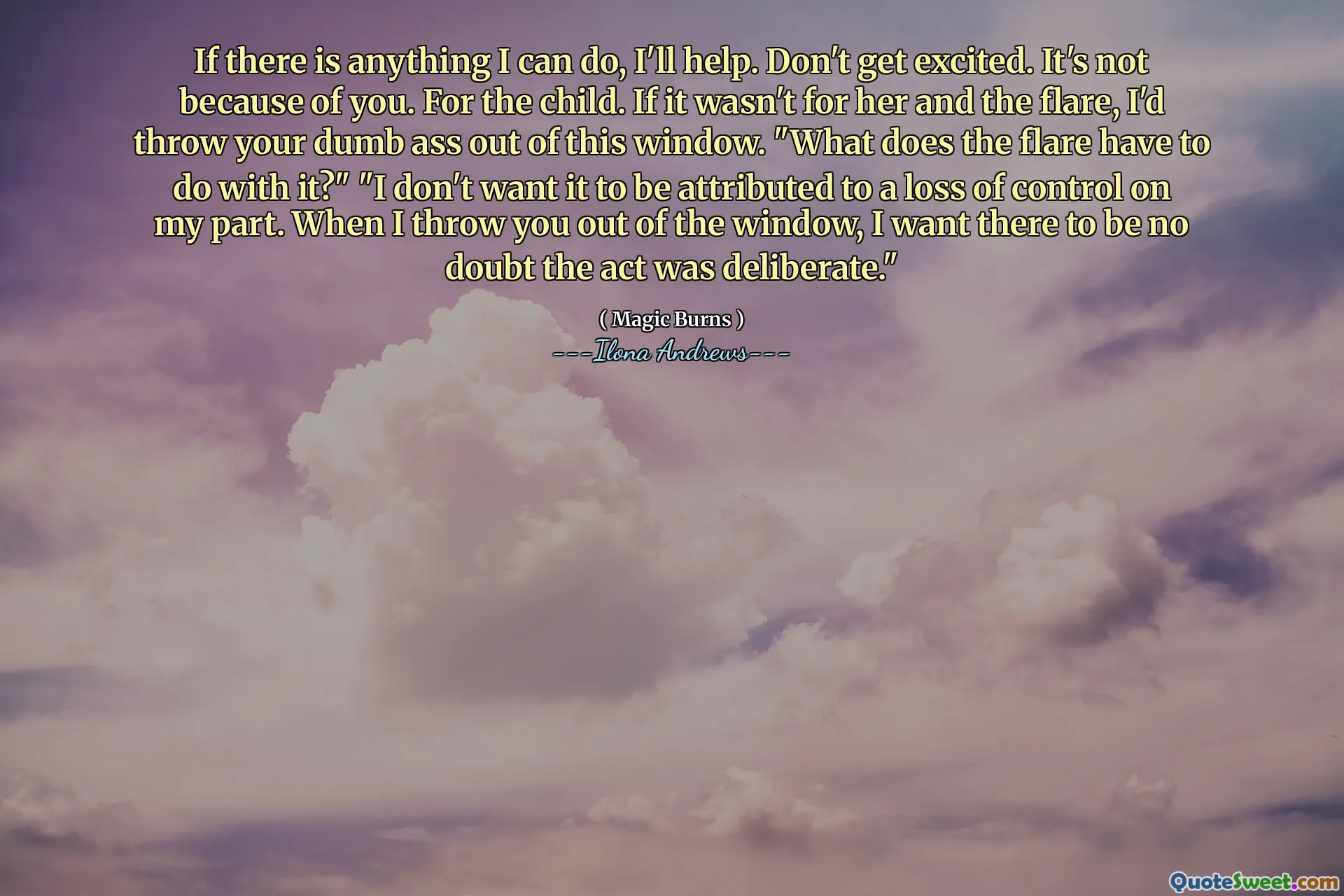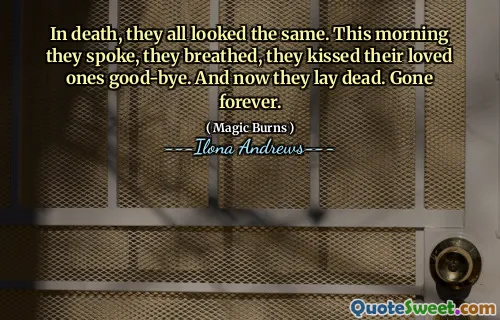
If there is anything I can do, I'll help. Don't get excited. It's not because of you. For the child. If it wasn't for her and the flare, I'd throw your dumb ass out of this window. "What does the flare have to do with it?" "I don't want it to be attributed to a loss of control on my part. When I throw you out of the window, I want there to be no doubt the act was deliberate."
This quote displays a unique blend of begrudging assistance mixed with sharp wit and a humorous yet forceful tone. The speaker offers help, but it's clearly not out of kindness toward the other person—instead, the motivation stems from a protective instinct for “the child” and the flare. The flare, in this context, symbolizes a constraint or circumstance preventing the speaker from unleashing their anger or frustration violently. What strikes me most is the controlled aggression and the deliberate clarification of intent—"I don’t want it to be attributed to a loss of control," implies a calculated decision to act, rather than an impulsive reaction. This adds a layer of dark humor to the narrative, balancing the threat with a formality and precision that makes the exchange almost playful. The tension between caring for someone (indirectly, through the child) and the raw expression of dominance or frustration offers insight into complex character dynamics where emotions and rationality collide. It gives a glimpse into the boundaries of control and motivation and highlights how even acts of aggression might be framed with intention and clarity, rather than chaotic emotion. The dialogue cleverly negates simplistic assumptions about actions being driven by loss of control, instead emphasizing the power in decisiveness and deliberate choice. Overall, this quote captures themes of reluctant support, protective instincts, and the nuanced interplay between impulse and control in human behavior.







